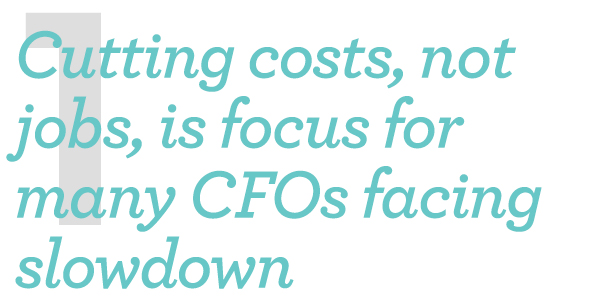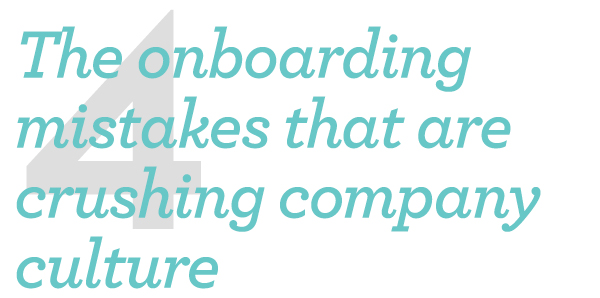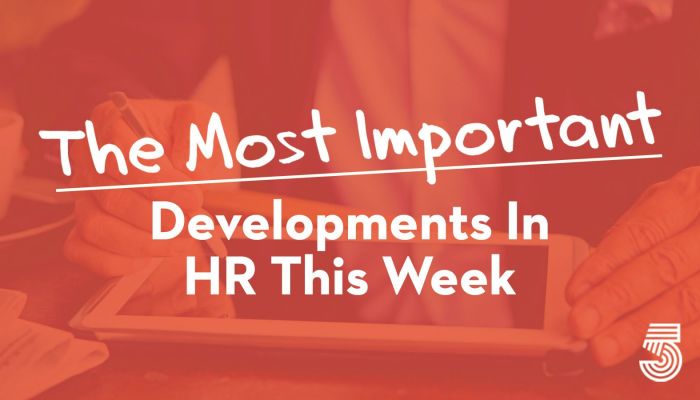The M.I.D., as we call it, is curated by our editorial team from more than 50 news sources. Like a lot of good ideas, this started as something I wanted for myself. If I can’t read everything, I at least want to stay abreast of the most important developments.
This week in HR, CFOs resisted cutting jobs, Gallup revealed the ROI of DEI, speaking of DEI we were reminded to include Jewish colleagues in those efforts, HRE mused about bad onboarding, and Great Place to Work said purpose in the workplace makes it a great place to work.

Finance chiefs are looking to squeeze cost savings from their businesses as they brace for a potential recession, but without resorting to layoffs in a challenging hiring environment. Many economists expect the U.S. economy to contract in 2023 following a series of aggressive interest-rate increases by the Federal Reserve to fight inflation. At the same time, many employers are looking for workers, with job openings well above the number of job seekers. That leaves some finance chiefs scouting for savings that don’t involve job cuts. Other ways to cut costs include exiting leases, reducing the number of suppliers, automating tasks, trimming software spending, and finding less expensive components, advisers said. “Most CFOs are very reluctant to let staff go in what seems to probably be a pretty mild recession,” said Alexander Bant, chief of research for CFOs at advisory firm Gartner Inc., adding that companies don’t want to have to rehire staff if the economy recovers quickly. WSJ


The business case for establishing diversity, equity, and inclusion (DEI) programs is vast, but many leaders and managers still fail to grasp how vital DEI is to employee wellbeing and productivity at work or the consequences of not making it a priority. The case is clear when it comes to employee burnout. Three in 10 employees in the U.S. report being burned out “very often” or “always” at work. Every month, employees like these choose to leave their jobs due to burnout, stress, and negative effects on their life. This adds up to 322 billion dollars spent on turnover and loss of productivity as a result of employee burnout globally. This means that leaders must act now to build strong, inclusive cultures and equitable practices that promote their employees’ wellbeing. A recent survey of over 9,000 working adults conducted by the Gallup Center on Black Voices shows that the way employers treat their employees is a key differentiator between employees who are engaged and high performing and those who are burned out — and likely heading for the exit. Gallup


When you pull back the curtain on great workplaces — where leaders have built trust with employees and workers give extra to help the organization innovate and grow — the key ingredient is purpose. In Great Place To Work research, the biggest indicator of whether an employee will stay in their job is whether they find their work meaningful. If they feel their day-to-day is not meaningful — if it’s “just a job” — they’re far less likely to want to stay with their company. Employees who report that their work is more than “just a job” are two to six times more likely to stay with their organization long-term. Only 52% of workers at average U.S. workplaces say they plan to stay at their company for a long time, according to a 2021 market survey of 14,000 global employees. Among the Fortune 100 Best Companies to Work For®, that number jumps to 86%. Employees with meaningful work are also more likely to report being in a high state of well-being. Only 16% of employees at typical U.S. companies said they were in this highest state of wellness in a Johns Hopkins study of 14,000 people from 37 countries. For the 100 Best Companies, that jumps to 58%. The biggest gaps in their experience? Purpose and connection. Great Place to Work


Welcome to your new job. Get ready to not know where anything is and whom to ask. Starting a new job — often after a series of interviews, skills tests, and background checks — is challenging enough, but a confusing and non-intuitive onboarding experience can frustrate new employees and diminish their first impression of their new employer. Glean, a technology solution provider that aims to improve the distribution of information inside organizations, sponsored a survey of 2,000 knowledge workers throughout the United States and found that 81% of employees said they felt overwhelmed with information during their onboarding process. With ongoing turnover troubles, getting off on the wrong foot with new hires can add to the challenges on HR leaders’ plates. The survey found that 69% of respondents said they struggled to find necessary information when starting their current job and 76% said the ability to access information without having to ask for help would make them feel more productive in their new role. Ultimately, the research found that it takes an average worker one year and seven months to feel that they’re thriving in a new job, suggesting that problems that start during onboarding could persist throughout the employee lifecycle. HRE


“So what’s the big deal?” a former manager of mine said to me. “We’re still having the leadership dinner on that day. If it’s Yom Kippur, and they don’t attend the dinner, then that’s their choice, not mine.” He shrugged his shoulders and rolled his eyes. This was a response to Jewish colleagues’ asking to have a leadership dinner that conflicted with Yom Kippur rescheduled for another date. Not only is Yom Kippur a sacred Jewish holiday, it’s a day of fasting. As someone who didn’t understand or observe the holiday himself, my manager made his expectation clear to his team: They had to choose between observing the holiday or attending the work event. In 2022, organizations spent approximately $9.3 billion on diversity, equity, and inclusion (DEI) efforts. But the inclusion of our Jewish colleagues and the rise of antisemitism is seldom acknowledged or included in those efforts. In 2021, antisemitic incidents reached an all-time high in the U.S. According to the Anti-Defamation League (ADL), this increase represents the highest number ever recorded since the organization began tracking them in 1979. It’s time organizations acknowledge and include the experiences of Jewish employees in DEI efforts. HBR










